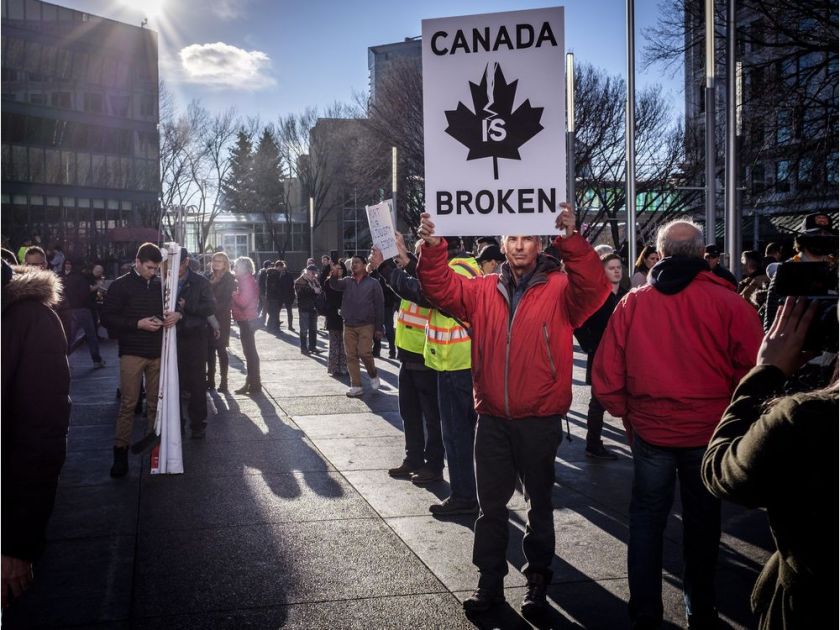Last week, the already rocky relationship between Alberta and Quebec got a little bit rockier.
Premier François Legault haughtily announced that he would not support any revival of the Energy East pipeline, which if completed would transport landlocked Albertan oil across Quebec to be refined and exported from New Brunswick. Legault dismissed the idea that Quebecers should be expected to support the West’s “dirty energy.”
Days later, the federal government announced next year’s equalization numbers. As has become predictable, Quebec will receive by far the largest share of the pot, while Alberta and the other oil-producing provinces will receive nothing.
Alberta is even more enraged than usual over the apparent inequity of the equalization formula. That Albertans’ federal tax dollars are landing disproportionately in Quebec while their oil-based economy is in shambles and the provincial budget is in deficit is too much to bear. Rachel Notley, Alberta’s premier, remarked that Legault should “get off his high horse” and recognize that Alberta’s oil is largely responsible for the size of Quebec’s equalization cheque each year.
Culturally, these two provinces can sometimes feel worlds apart. As a Montrealer by birth who spent the past half-decade working in Calgary, navigating my divided loyalties has been tricky.
Friends from Montreal shake their heads at Alberta’s relentless push to extract and export ever more oil. Over Thanksgiving dinner, one friend remarked, “They’ve been focused so hard for so long on making as much money from oil as they possibly can, they can’t even realize when it’s time to give it up.”
This friend isn’t wrong. Alberta’s failure to develop a more diversified economy has been a huge mistake.
Meanwhile, my friends in Calgary look to Quebec as a province of have-nots set on obstructing Albertan prosperity at every possible turn. A friend who works in the oil rigs messaged me: “They’re happy reaping the benefits of our work when it happens out here, but when it comes to building a pipeline through their land — suddenly not OK anymore?”
That friend isn’t wrong, either. Quebec is content to import oil from the Middle East to feed their thirsty refineries. That the province then blocks plans for a Canadian pipeline that could reduce the need to import oil is the ultimate hypocrisy to my Calgarian friends.
Quebec’s contempt and Alberta’s anger are understandable. But for projects in the country’s overall economic and social interest, Canadian provinces need to stop thinking so provincially. For Quebec, that means being open to pipelines that meet safety and environmental standards for the sake of benefits to all Canadians like the ability to build more schools, hospitals, roads, and hydro-electricity infrastructure. For Alberta, that means recognizing that equalization payments are at the core of the Canadian Confederation, which continues to aspire to leave no member of the federation behind.
It’s not okay for Legault to happily accept a slice of the returns from Alberta’s resource sector, while at the same time turning his nose up at attempts by the Albertan energy sector to secure market access.
It’s also not okay for Jason Kenney, the likely future premier of Alberta, to point to next year’s equalization figures as evidence that Albertans are being “taken for suckers.”
Katie Ragan is a joint MPP and MBA candidate at the Harvard Kennedy School of Government and the Harvard Business School in Cambridge, Mass. She is from Montreal.




















